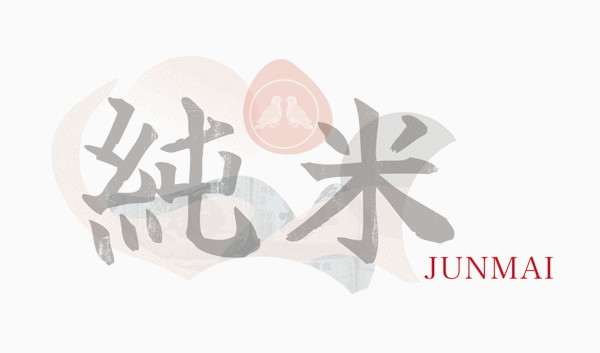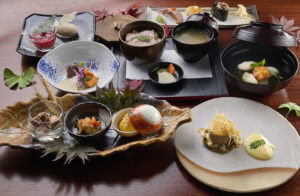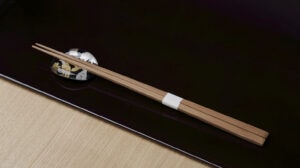Junmai & Tokubetsu Junmai
To understand Japanese sake is knowledge of the different sake categories helpful. Junmai is one of two lower premium sake types. Tokubetsu Junmai is a refinement of it.
What does Junmai mean?
The term Junmai (純米) in the name means "pure rice".
Other than water, rice, Kōji and yeast, no additives are allowed, including the addition of brewing alcohol as in Ginjō or Daiginjō.
The term Junmai can refer directly to this class of sake alone - or it can be used as a general term for sake to which no brewing alcohol has been added.
Junmai-class sake is simply called "Junmaishu" (純米酒) in Japan. In Japanese, a single character can have several different pronunciations. "Shu" (酒 - Japanese for alcoholic beverage) is another way of referring to sake.
What criteria must a Junmai-Shu meet?
The rice used to make Junmai sake must be at least third grade (Jap. Santou) in the rice inspection. With this inspection, the quality of the rice is evaluated and classified into five classes. For each class, certain criteria apply, such as the moisture content of the rice and the shape of the grain. In addition, the proportion of Kōji used must be at least 15 % of the total weight of the rice.
In the past, the degree of polishing of the rice had to be 70 % or less, but this restriction was abolished in 2004. Junmai sake therefore has no requirement on the degree of polishing, but the current degree of polishing must be indicated on the label.
How does Junmai-Shu taste?
Junmai category sake has a strong and full-bodied. Its flavor spectrum varies from dry to smooth and rounded.
One of the characteristics of Junmai sake is that it can be enjoyed at a variety of temperatures. It can be enjoyed chilled or warmed. If you want to enjoy the full flavor of the rice, we recommend drinking it when lukewarm. This is because Junmai sake is rich in umami ingredients such as succinic acid and amino acids. These umami components taste even better when warmed.
In Japan, Junmai sake is very popular as a food accompaniment because it goes well with many different dishes.
What does Junmai sake go with and what is it best drunk from?
It has a rich flavor, so it goes well with richly flavored dishes and fatty meat dishes, rather than light and subtle foods. It may seem surprising, but Junmai sake goes well with pizza, steak or even hamburgers. You should definitely give this combination a try!
Traditionally, Junmai sake is drunk in small ceramic vessels, but recently the Austrian glass specialist Riedel has also started offering glasses specifically for Junmai.
Our tip: Although rich in impact and overall depth, Junmaishu tend to be less aromatic than Ginjō or Daiginjō class sake. When tasting sake, therefore, sake novices are more likely to be advised to start with highly polished Ginjō and Daiginjō varieties before moving on to the more earthy Junmai varieties.
The refinement of Junmai: Tokubetsu Junmai
As mentioned above, there is no requirement for Junmai sake on the degree of polishing of the rice. But if certain conditions are met, it may call itself "Tokubetsu Junmai" (特別純米). Tokubetsu means "special" in German, expressing that the brewmaster has come up with something special.
The brewery must meet at least one of three conditions for "Tokubetsu":
- The rice was polished down to at least 60 %;
- the brewmaster has selected and used a special variety of rice;
- the brewmaster has used a specific, recognized technique.
Tokubetsu Junmai has the same charm as Junmai sake with the natural flavor and umami of rice - but is often easier to drink than Junmai sake. If you are looking for a balanced sake at a relatively reasonable price, Tokubetsu Junmai would be a good choice.
Sharing pleasure in Japanese
SUSHIYA is passionate about Japanese cuisine and culture. In our restaurant sansaro you can encounter the fascinating Japanese cuisine or have it delivered to your home. On our homepage, Facebook and Instragram we always give insights into news and interesting topics.
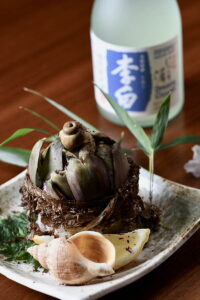
Sake Tasting Event on May 5, 2019 at Restaurant sansaro
Our kitchen team is already busy preparing for the Sake Tasting at the restaurant sansaro in Munich on May 5, 2019
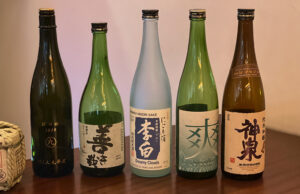
Sake Tasting 29 May 2022
Outlook for the sake tasting on May 29, 2022 At the end of May we will again host a sake tasting, Sunday, 15.30h. Before Corona had

Review Sake Tasting with Food Pairing on May 1, 2018
Review of the sake tasting on May 1, 2018 at the sushi restaurant sansaro in Munich - where you can get to know Japanese sake and combine it with the right food.
